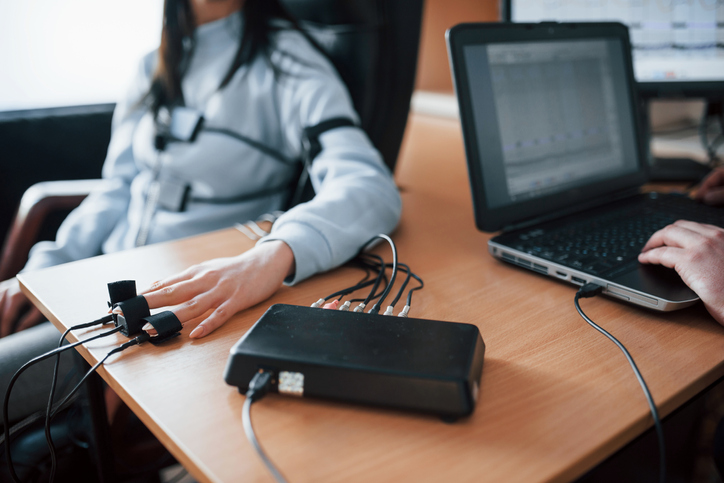If you are under investigation for certain offenses in the Houston area – particularly sex crimes – law enforcement will likely contact you and attempt to take your statement. Additionally, they may also ask you to go to the police station to take a polygraph test (also known as a “lie detector” test). Is this a good idea? What are the risks involved with taking a police polygraph test if you are under investigation?
What is a polygraph test?
A polygraph test is a junk science device that claims to be able to tell if a person is being truthful or not based on physiological indicators such as blood pressure, pulse, respiration and other metrics. It is claimed that when a person is not being truthful, certain physiological responses will be present that will indicate a deceptive answer. According to the Supreme Court of the United States, polygraphs provide results that are “little better than could be obtained by the toss of a coin.” Accordingly, most courts – including Texas – do not allow a polygraph examination in a trial as they are not sufficiently reliable to be admitted under the Rules of Evidence.
How are polygraphs used by police in Texas?
When a suspect is under investigation for a sex crime like sexual assault or indecency with a child, the police may ask the suspect to come to the station to take a polygraph. Typically (but not always), this happens where a suspect has already given a statement and denied the offense. In these cases, the police will follow up with the suspect and ask for a polygraph to “confirm” their statement.
What the police generally hope for in these situations is that a suspect will fail the polygraph and explicitly or implicitly admit his guilt upon being informed that he failed the test. In other words, the police may use the polygraph as a form of psychological pressure to try and induce a confession from a suspect. The reality is that even if a person is innocent, it is very easy to fail a polygraph due to the machine’s lack of reliability or manipulation of the test from the police polygraph examiner.
Should you take a police polygraph?
There is no advantage to taking a police polygraph if you are under investigation for any criminal offense. If the police claim you failed a polygraph, you will look guilty and the police will interpret your actions as evidence of guilt. Although the results of the polygraph itself are not admissible in court, a person’s inculpatory statement upon being informed that he failed a polygraph may be. On the other hand, if you pass the polygraph, there is no guarantee that the police won’t charge you anyway. As a result, there is no upside to taking a polygraph.
If you find yourself under investigation for any crime, it is very important that you consult with an experienced criminal defense attorney prior to making any statement to the police or agreeing to submit to a police polygraph. Criminal defense attorney Jose Ceja is a former prosecutor who regularly defends clients under investigation throughout the Greater Houston area. Call Ceja Law Firm today.










